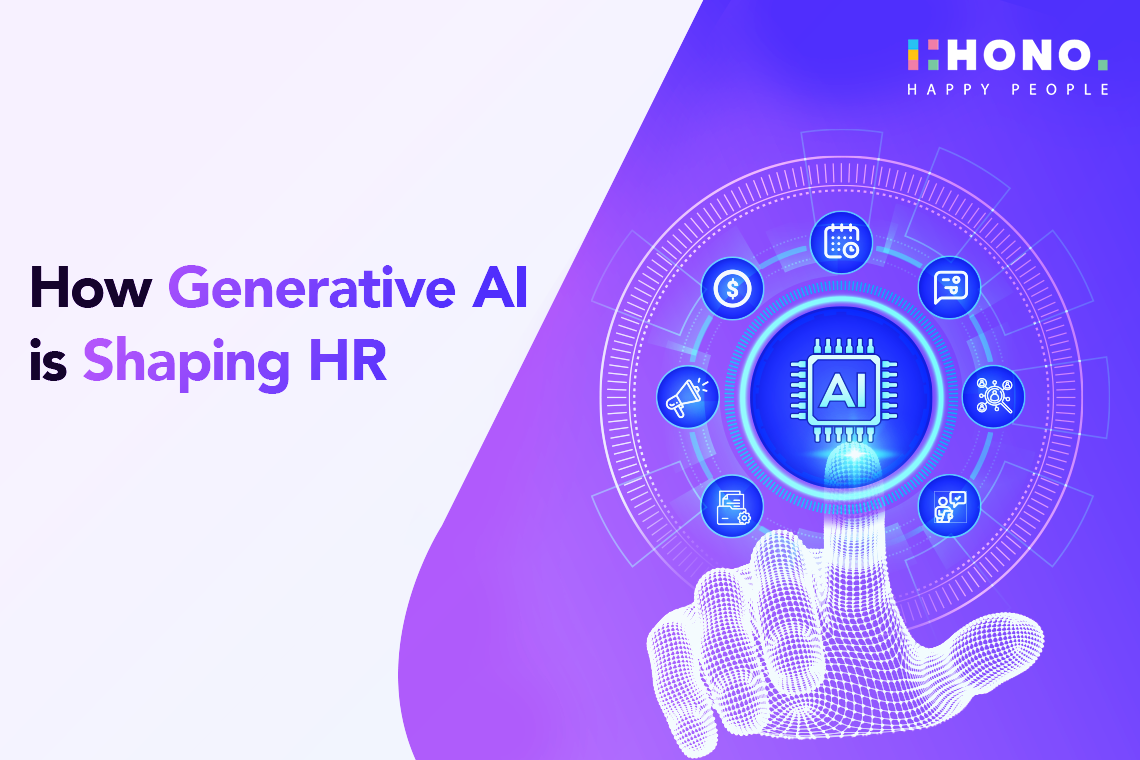- Gen AI
Top 7 Benefits of AI in Human Resources: Enhancing Efficiency and Accuracy
10 Sep, 2024 |

Artificial Intelligence (AI) is rapidly transforming the field of Human Resources (HR), offering tools that significantly enhance both efficiency and accuracy across various HR functions. According to a recent McKinsey survey, 65% of organizations are now regularly using generative AI in at least one business function, with HR being one of the key areas experiencing notable improvements. In fact, the adoption of AI in HR is leading to meaningful cost reductions and efficiency gains, particularly in recruitment, onboarding, and performance management.
As HR departments continue to embrace AI-driven solutions, the impact on organizational productivity is profound. For instance, Gartner's 2024 report highlights that 38% of HR leaders are already piloting or planning to implement AI tools in HR, a significant increase from the previous year. This surge in adoption is driven by the need to streamline HR processes and improve decision-making accuracy.
In this blog, we will explore the top 7 benefits of AI in HR, focusing on how these advancements are revolutionizing the way HR professionals operate, leading to a more efficient and data-driven work environment.
Streamlining Recruitment Processes
AI-driven tools have brought in a lot of changes in the recruitment process, particularly in automating resume screening and candidate matching. Traditionally, HR professionals would spend countless hours sifting through resumes and shortlisting candidates, a process prone to human error and bias. However, AI has significantly improved the efficiency and accuracy of this process.
AI in Resume Screening: AI-powered tools use natural language processing (NLP) to scan and analyze resumes, identifying key skills, experiences, and qualifications that match the job description. These tools can quickly filter out unqualified candidates and highlight those who best fit the role, thus streamlining the initial screening process.
Candidate Matching: AI algorithms can also compare candidate profiles against job requirements, considering factors such as experience, skills, and even cultural fit. This not only speeds up the hiring process but also ensures that the best candidates are matched to the appropriate roles.
Benefits:
- Reduced Time-to-Hire: By automating the initial stages of recruitment, AI reduces the time needed to identify and shortlist candidates, leading to faster hiring decisions.
- Improved Candidate Quality: AI's ability to analyze vast amounts of data ensures that only the most suitable candidates are considered, enhancing the overall quality of hires.
This integration of AI into recruitment processes allows HR teams to focus on more strategic tasks, ultimately improving the overall efficiency and effectiveness of hiring.
Enhancing Employee Onboarding
AI applications in employee onboarding are transforming how new hires are introduced to their roles and the company culture. AI-driven onboarding platforms can create personalized onboarding experiences by tailoring the content, schedule, and resources to each new employee's specific needs.
Personalized Onboarding Experiences: AI tools analyze data from the new hire's profile, job role, and learning preferences to provide a customized onboarding journey. This might include tailored training modules, interactive FAQs, and AI-powered virtual assistants to guide new employees through the process.
Benefits:
- Reduced Onboarding Time: By automating administrative tasks and providing self-paced learning options, AI can significantly reduce the time it takes for new hires to become productive.
- Better Employee Engagement: Personalized onboarding experiences ensure that new hires feel more connected and supported, leading to higher engagement from the start.
Optimizing Performance Management
AI is playing a crucial role in optimizing performance management by providing HR professionals with data-driven insights into employee performance. Traditional performance reviews often suffer from biases and a lack of actionable data, but AI changes this dynamic.
Tracking Employee Performance: AI tools can continuously monitor employee activities, track progress against goals, and analyze performance metrics. This allows for real-time feedback and more accurate performance assessments.
Benefits:
- More Accurate Performance Reviews: AI removes human biases and provides objective data, leading to fairer and more accurate performance evaluations.
- Tailored Development Plans: Based on performance data, AI can suggest personalized development plans that target specific areas for improvement.
Improving Employee Engagement
AI-driven tools are enhancing employee engagement by facilitating continuous feedback, conducting sentiment analysis, and creating personalized experiences. These tools help HR teams understand and respond to employee needs more effectively.
Continuous Feedback & Sentiment Analysis: AI can gather and analyze feedback from various channels, offering insights into employee sentiment and identifying potential issues before they escalate.
Benefits:
- Fostering a Positive Work Environment: AI helps HR teams identify and address concerns promptly, contributing to a healthier work environment.
- Increased Retention: By ensuring employees feel heard and valued, AI-driven engagement strategies can lead to higher retention rates.
Automating Administrative Tasks
AI is revolutionizing the management of repetitive HR tasks such as payroll, leave management, and compliance tracking. By automating these processes, AI frees up HR professionals to focus on more strategic and value-added activities.
AI Handling Repetitive Tasks: Automated systems can manage payroll calculations, track employee attendance, and ensure compliance with legal requirements without manual intervention.
Benefits:
- Increased Efficiency: Automation reduces the time and effort needed to complete administrative tasks, improving overall efficiency.
- Focus on Strategic Initiatives: With routine tasks automated, HR teams can dedicate more time to strategic planning and employee development.
Enhancing Learning and Development
AI plays a significant role in enhancing learning and development by creating personalized learning paths and identifying skill gaps. AI-driven platforms can analyze employee data to recommend courses, training programs, and development opportunities tailored to individual needs.
Personalized Learning Paths: AI can recommend specific training modules based on an employee's current skills, job requirements, and career aspirations, ensuring that learning is both relevant and effective.
Benefits:
- Targeted Employee Development: Employees receive the training they need to excel in their roles, leading to better performance and career growth.
- Upskilling Opportunities: AI helps identify skill gaps and offers solutions to bridge them, ensuring that the workforce remains competitive.
Data-Driven Decision Making
AI empowers HR professionals to make more informed decisions through predictive analytics and comprehensive data analysis. By leveraging AI, HR teams can gain deeper insights into workforce trends, employee behavior, and potential challenges.
AI in HR Analytics: AI tools can analyze vast amounts of HR data, providing actionable insights that help in workforce planning, talent management, and other strategic HR decisions.
Benefits:
- Informed HR Decisions: AI-driven analytics provide HR teams with the data they need to make decisions that align with organizational goals.
- Enhanced Organizational Efficiency: By basing decisions on accurate data, HR can optimize processes, improve employee satisfaction, and drive overall organizational success.
The Road Ahead for AI in HR
The integration of AI in HR is undeniably transforming the way organizations manage their workforce. From streamlining recruitment processes to enhancing employee onboarding, AI is driving significant improvements in efficiency and accuracy across HR functions. As AI continues to evolve, its role in HR will only become more integral. The future of HR is AI-driven, and organizations that leverage these tools will undoubtedly gain a competitive edge.
One such innovative platform making strides in AI-powered HR solutions is HONO. We offers a comprehensive HR management system that integrates AI to streamline various HR processes, from recruitment to employee engagement. With features like predictive analytics, multilingual support, and generative AI capabilities, HONO is designed to enhance HR efficiency and foster a culture of growth and connectivity across organizations. For HR professionals looking to explore AI tools, HONO provides a comprehensive solution that not only improves operational efficiency but also supports strategic decision-making and employee satisfaction.
.png?width=50&height=50&name=Team%20HONO%20logo-01%20(1).png)



